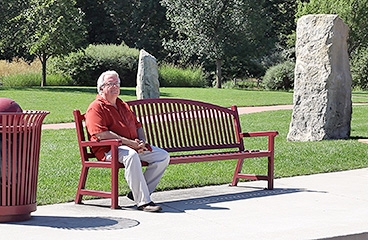
What are progressive muscle relaxation and stress?
Stress is your body's response to a hard situation. It can be physical, emotional, or mental. A lot of things can cause stress. You may feel stress when you go on a job interview, take a test, or run a race. This kind of short-term stress is normal and even useful. It can help you if you need to work hard or react quickly.
Stress also can last a long time. Long-term stress is caused by stressful situations or events. Examples of long-term stress include long-term health problems, ongoing problems at work, and conflicts in your family. Long-term stress can harm your health.
When you have anxiety or stress in your life, one of the ways your body responds is with muscle tension. Progressive muscle relaxation is a method that helps relieve that tension.
How does progressive muscle relaxation reduce stress?
The body responds to stress with muscle tension, which can cause pain or discomfort. In turn, tense muscles relay to the body that it's stressed. That keeps the cycle of stress and muscle tension going. Progressive muscle relaxation helps break this cycle by reducing muscle tension and general mental anxiety. This method often helps people get to sleep.
How do you do progressive muscle relaxation?
To do progressive muscle relaxation, first you tense a group of muscles as you breathe in. Then you relax them as you breathe out. Notice how your muscles feel when you relax them. You work on your muscle groups in a certain order.
Through practice, you can learn to feel the difference between a tensed muscle and a relaxed muscle. Then you can learn how to turn on this relaxed state at the first sign of a muscle tensing up due to stress.
Practicing this method for a few weeks will help you get better at this skill. In time you'll be able to use this method to relieve stress. When you first start, it may help to use an audio recording until you learn all the muscle groups in order. Check online for these recordings.
Choose a place where you won't be interrupted. It should have space for you to lie down on your back and stretch out comfortably, such as on a carpeted floor.
Follow-up care is a key part of your treatment and safety. Be sure to make and go to all appointments, and call your doctor if you are having problems. It's also a good idea to know your test results and keep a list of the medicines you take.
Where can you learn more?
Go to http://www.healthwise.net/patientEd
Enter C957 in the search box to learn more about "Learning About Progressive Muscle Relaxation for Stress".
Current as of: July 31, 2024
Author: Ignite Healthwise, LLC Staff
Clinical Review Board
All Healthwise education is reviewed by a team that includes physicians, nurses, advanced practitioners, registered dieticians, and other healthcare professionals.

